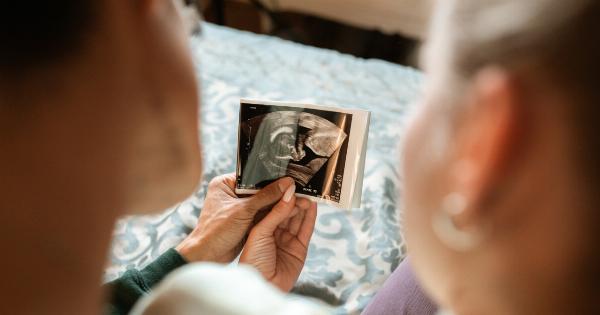Pregnancy is a time of excitement, joy, and anticipation for most women. However, for some women, it can also be a time of emotional turmoil, stress, and anxiety.
Prenatal or antenatal depression is a form of clinical depression that affects women during their pregnancy. It is estimated that between 14% and 23% of pregnant women experience depression, making it a common mental health issue during pregnancy.
Symptoms of Prenatal Depression
The symptoms of prenatal depression are similar to those of general depression, including:.
- Feeling sad, anxious, or empty
- Difficulty sleeping or oversleeping
- Loss of interest in activities once enjoyed
- Changes in appetite or weight
- Feeling tired or fatigued
- Feeling guilty, hopeless, or worthless
- Difficulty thinking or concentrating
- Recurring thoughts of death or suicide
Causes of Prenatal Depression
Prenatal depression is a complex condition that can have multiple causes. Some of the most common causes include:.
- Hormonal changes – during pregnancy, the levels of hormones such as estrogen and progesterone increase significantly, which can affect the brain chemicals that regulate mood
- Physical and emotional stress – pregnancy can be physically and emotionally demanding, which can lead to stress and anxiety
- History of depression – women who have a history of depression or other mood disorders are more susceptible to prenatal depression
- Relationship issues – difficulties in the relationship with the partner, family members, or friends can contribute to prenatal depression
- Financial concerns – the cost of raising a child and the pressure of providing for the family can be stressful for some women
Impact on the Mother and Child
Prenatal depression can have a significant impact on both the mother and child. For the mother, it can lead to poor self-care, difficulty bonding with the baby, and an increased risk of postpartum depression.
It can also affect the baby’s health and development, leading to low birth weight, premature birth, and developmental delays. Children born to mothers with depression are also more likely to experience behavioral and emotional problems, which can persist into adolescence and adulthood.
Treatment Options for Prenatal Depression
If you are experiencing prenatal depression, it is essential to seek help from your healthcare provider. There are several treatment options available to manage prenatal depression, including:.
- Talk therapy – counseling can help you identify and manage negative thoughts and feelings, improve communication and problem-solving skills, and develop coping strategies
- Medication – some antidepressant medications are safe to use during pregnancy and can help manage severe symptoms
- Lifestyle changes – regular exercise, a healthy diet, and adequate sleep can help improve mood and reduce stress
Preventing Prenatal Depression
While prenatal depression is not entirely preventable, there are some steps you can take to reduce the risk of developing it, including:.
- Managing stress and anxiety – practice relaxation techniques, such as deep breathing or yoga, to help manage stress and anxiety
- Getting support – talk to your partner, family members, or friends, or join a support group to get emotional support and practical help
- Getting regular prenatal care – regular prenatal care can help identify and manage prenatal depression and other health concerns
The Importance of Seeking Help
Prenatal depression is a common and treatable mental health condition that affects many women during their pregnancy. If you are experiencing symptoms of prenatal depression, it is essential to seek help from your healthcare provider.
With proper treatment and support, you can manage the symptoms of prenatal depression, improve your overall well-being, and reduce the risk of complications for you and your baby.



























